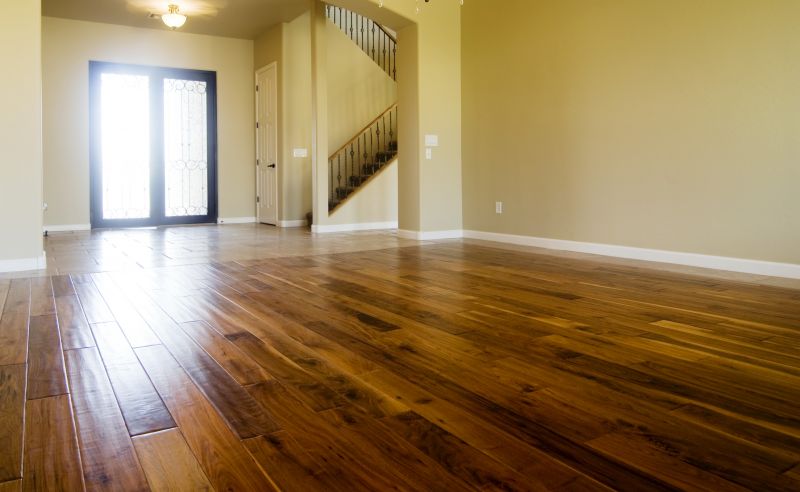Expert Picks For Engineered Hardwood Installation Equipment And Supplies
Get insights into top-rated products that help you install engineered hardwood floors efficiently and with professional quality.
 Engineered hardwood installation requires a careful selection of products to ensure durability, aesthetic appeal, and proper performance. From underlayments to adhesives, each component plays a crucial role in achieving a successful flooring project. The right products can help manage moisture, provide a stable base, and ensure a smooth, professional finish. It is important to understand the different options available and how they interact to create a long-lasting, attractive floor.
Engineered hardwood installation requires a careful selection of products to ensure durability, aesthetic appeal, and proper performance. From underlayments to adhesives, each component plays a crucial role in achieving a successful flooring project. The right products can help manage moisture, provide a stable base, and ensure a smooth, professional finish. It is important to understand the different options available and how they interact to create a long-lasting, attractive floor.
Top Overall Option
Premium Underlayment System
A high-quality underlayment system designed for engineered hardwood installations offers excellent sound absorption, moisture protection, and thermal insulation. It provides a stable base that helps to smooth minor subfloor imperfections and enhances overall comfort. Suitable for floating, glue-down, or nail-down methods, this versatile product supports various installation scenarios and can contribute to a professional finish. Its durable construction ensures long-term performance and ease of installation, making it a reliable choice for many projects.
Types of Products For Engineered Hardwood Installations
Moisture Barriers
Protects the flooring from moisture and humidity, especially in basements and bathrooms.
Underlayments
Provides soundproofing, thermal insulation, and a smooth surface for installation.
Adhesives
Secures engineered planks to the subfloor, suitable for glue-down installations.
Nail and Staple Guns
Tools used for securing planks in nail-down or staple-down methods.
Transition Strips
Creates a seamless transition between different flooring types or room areas.
Floor Levelers
Used to correct uneven subfloors before installation.
Cleaning and Prep Products
Includes primers and cleaning solutions to prepare the subfloor surface.
Expansion Gaps and Spacers
Maintain proper spacing to accommodate wood expansion and contraction.
Edge Sealants
Seal the edges of the flooring to prevent moisture ingress.
Acclimation Kits
Help adjust engineered hardwood to the installation environment for optimal stability.
Popular Choices
Affordable and easy to install, offering basic soundproofing and cushioning.
Essential in moisture-prone areas to prevent water vapor transmission.
Strong bonding agents suitable for various subfloor types.
Popular tools for securing engineered planks in traditional installation methods.
Versatile options for finishing floor edges and transitions.
Used to create an even surface on uneven subfloors prior to installation.
Improve adhesion and ensure a secure bond for glue-down installations.
Help control moisture levels and stabilize wood before installation.
Assist in sealing gaps and preventing moisture intrusion.
Choosing the appropriate products depends on several factors including the subfloor type, room conditions, and personal preferences regarding installation methods. For example, some projects may benefit from floating floor systems that are easy to install and remove, while others might require a glue-down approach for added stability. Proper preparation and the right product combination can significantly influence the overall outcome.
Investing in high-quality underlayments and adhesives can also contribute to noise reduction, increased comfort, and better thermal insulation. Additionally, moisture barriers are essential in areas prone to humidity or spills, helping to prevent damage and ensure the longevity of the engineered hardwood. When selecting products, it is vital to consider compatibility with engineered wood and the specific installation environment.
Overall, understanding the range of products available and their intended applications can empower homeowners and installers to make informed decisions. Whether undertaking a DIY project or hiring professionals, the right products are fundamental to achieving a seamless, durable, and visually appealing engineered hardwood floor.
Key Buying Considerations
- Compatibility with the subfloor type and condition
- Moisture resistance and vapor transmission properties
- Installation method suitability (floating, glue-down, nail-down)
- Soundproofing and thermal insulation qualities
- Ease of installation and handling
- Durability and long-term performance
- Compatibility with engineered hardwood specifications
- Environmental conditions of the space, such as humidity levels
- Availability of necessary accessories like spacers and transition strips
- Product certifications and safety standards
- Budget considerations and cost-effectiveness
- Ease of maintenance and cleaning
- Impact on indoor comfort and acoustics
- Flexibility for future modifications or removals
- Brand reputation and customer reviews
